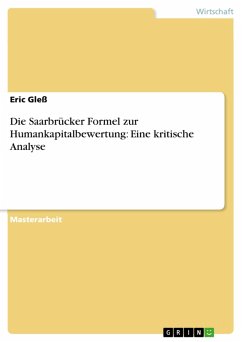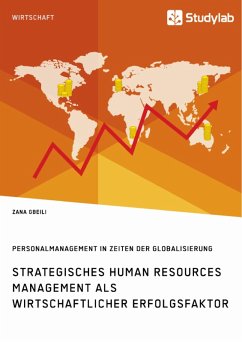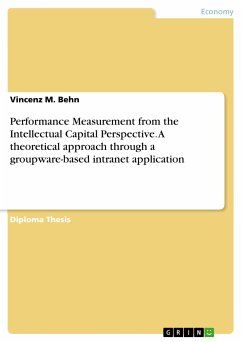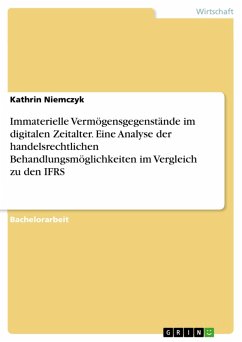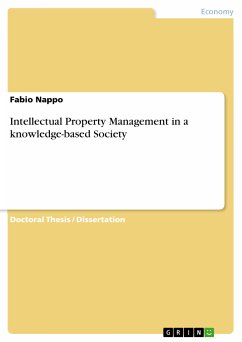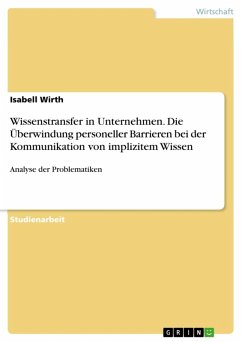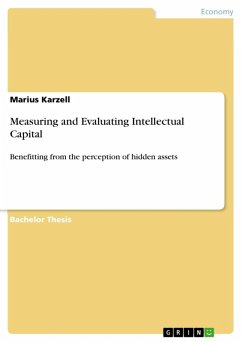
Measuring and Evaluating Intellectual Capital (eBook, ePUB)
Benefitting from the perception of hidden assets
Sofort per Download lieferbar
Statt: 42,95 €**
29,99 €
inkl. MwSt. und vom Verlag festgesetzt.
**Preis der gedruckten Ausgabe (Broschiertes Buch)
Alle Infos zum eBook verschenkenWeitere Ausgaben:

PAYBACK Punkte
0 °P sammeln!
Bachelor Thesis from the year 2010 in the subject Leadership and Human Resources - Miscellaneous, grade: 2,0, University of Applied Sciences Essen, language: English, abstract: The development from the industrial society to an information and knowledge based society is mainly characterized by the evolution of information and knowledge based technologies and the possibilities to share and gain information within a globalized world. In order to create products and to provide services which are competitive in the market it can be assumed that the importance of obtaining competitive advantages, su...
Bachelor Thesis from the year 2010 in the subject Leadership and Human Resources - Miscellaneous, grade: 2,0, University of Applied Sciences Essen, language: English, abstract: The development from the industrial society to an information and knowledge based society is mainly characterized by the evolution of information and knowledge based technologies and the possibilities to share and gain information within a globalized world. In order to create products and to provide services which are competitive in the market it can be assumed that the importance of obtaining competitive advantages, such as process or product based knowledge and protecting and open up new resources for innovation is permanently rising. In the last century labor has been only considered as an economic production factor in context with land and capital following the classical economic approach of Adam Smith. Today we have realized that a main source for innovation is based on a company's labor workforce also known as human resources. There is a scientific consensus that on average 80% of a company's market value is based on intangible assets and that knowledge is getting a strategic resource and a critical success factor for competitiveness.1 A straight trend of emerging business and knowledge networks which have an important impact on corporate success2 are supporting this aspect. That implies a distinct constraint for modern management to capture and evaluate information regarding intangible company assets in order to be able to operationalize actions to support the strategy. The fact that management decisions are taken based on information which is corresponding on 20% of the company value is unsatisfying and may lead into the wrong direction. There are several problems which occur if management decides to disclose these "hidden assets"3. Based on the individual company and its core business, assets have to be identified and evaluated in a proper way. Starting with the choice of a proper measuring and evaluating method decisions have to be made which information should be kept confidential and which information would be advantageous to provide...
Dieser Download kann aus rechtlichen Gründen nur mit Rechnungsadresse in A, B, BG, CY, CZ, D, DK, EW, E, FIN, F, GR, HR, H, IRL, I, LT, L, LR, M, NL, PL, P, R, S, SLO, SK ausgeliefert werden.





